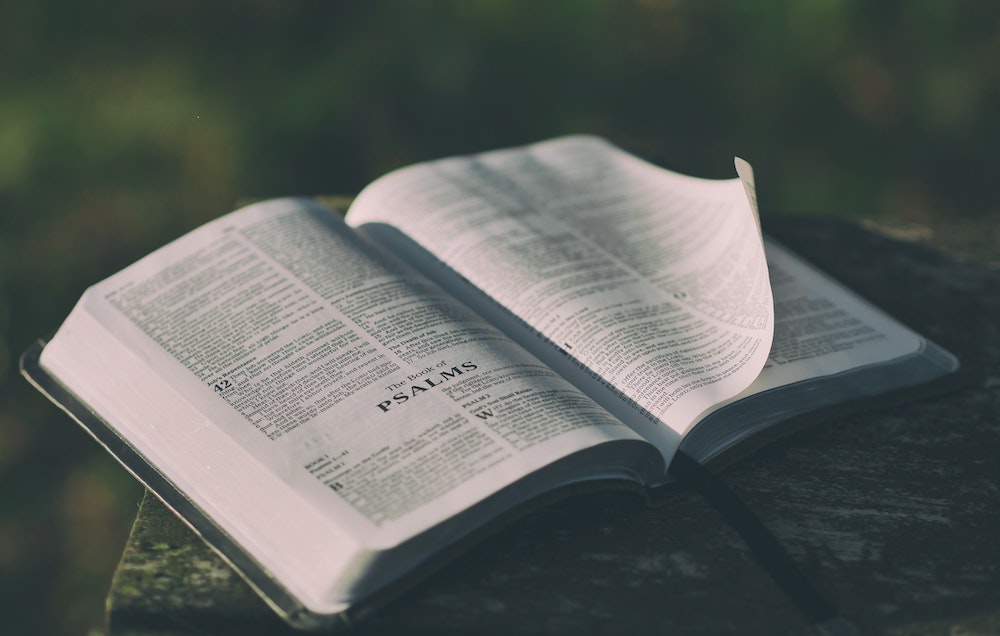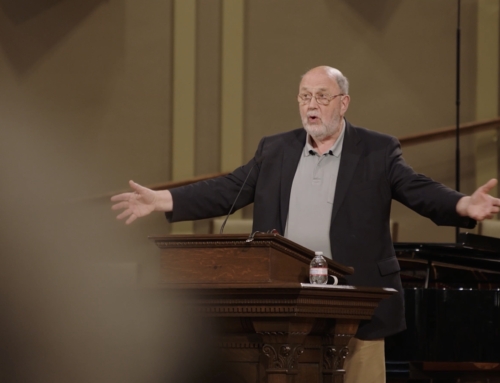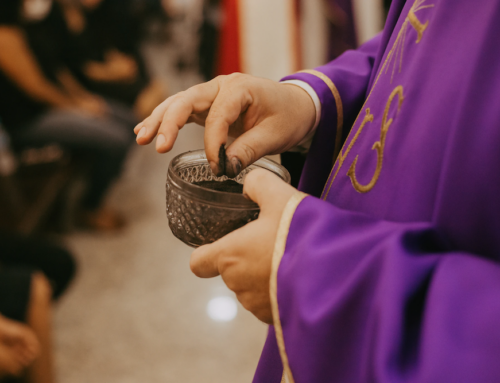The Psalter and the Life of Prayer
Prayer is a vital part of the Christian life. The Psalter is filled with lyrical prose that captures the range of human experience and gives voice to express our innermost life before God in prayer. Many of the psalms connect the worshipper towards what James Hely Hutchinson calls a ‘poetry of praise’. We celebrate and delight in the LORD, giving thanks for the joys of life and his mercies that are new every morning.
Yet, even in the midst of deep distress and grief, in frustration, or indignation at wickedness or injustice, the psalmist spurs us to acknowledge our true thoughts and feelings before God. As we engage with these ancient prayers and living words of lament, our perspective shifts towards the comfort and hopefulness found in God, our creator and redeemer. The Psalms lead us to place our confidence in him— designer of the heavens and the earth and the tender and skilled knitter of our inmost being.
Many people experience a vibrant and regular life of prayer. Others struggle to find a sustainable rhythm of prayer. There is a wide spectrum between these two poles. The devotional life can be a circuitous journey to and fro. When we are caught up by the gusts and wind shears of life’s unexpected turbulence—family crises, tragedies, or terminal diagnoses—mere words can be insufficient. The Psalter serves as the prayer book and the songbook of the Bible and supplants our speechlessness with vocabulary to express the cries of our hearts and the heaviness of our souls. The Psalms cast God’s light through the spectrum of human experience, illuminating the multi-coloured richness of his promises to all of creation.
Student Spotlight
Recently, I had the chance to review my friend Sita’s anthology of poetry entitled, Rhymes Under the Rainbow. Sita and I connected earlier this year during Prof. Wright’s webcast, ‘The Public Life of the People of Christ’. At that time, I was caring for my Dad, who had been diagnosed with cancer in Fall 2020. Sita reached out to me from across the ocean and offered her support and encouragement through several warm emails. I had no idea that she was receiving palliative care treatment for cancer that is incurable.
Over the next few weeks and months, we communicated regularly and prayed for each other. When I was in Oxford, Sita and her husband visited me and brought me a meal. We met outside and it was a joy to see each other face to face.
At that time, Sita was in the process of finalising her anthology of poetry that she had written for her husband and her team of caregivers and health workers. It was obvious that these were not just thoughtful and reflective poems, but a collection of poetry informed by her PhD research and studies in English Literature and Philosophy. Sita has dedicated her book to her medical team at the Churchill Hospital Cancer and Haematology Centre, Sobell House Hospice, and the chaplaincy team. All the proceeds from the sale of her work will benefit Sobell House and Oxford Hospitals Charity. Her generous gift is no surprise to me, as I reflect on her giving spirit in delivering a home-cooked meal to me when I was far from my own home.
In her own words, Sita shares her personal story of her cancer diagnosis in her book, Rhymes Under the Rainbow. The prose and the excerpts from her poetry are shared with permission from her publisher.
I went through an emergency biopsy procedure and was diagnosed with incurable metastatic cancer in the lungs. At first, death seemed imminent – but with the help of my National Health Service (NHS) medics I stabilised to remain on palliative treatment, uncertain for how long cycles of chemo treatment would stay me. Thus, I continue to exist, knowing now what it is I face, and preparing – trying to make hay while the sun is shining. For me it is one day at a time, season by season, for each day I walk that walk through the tunnel of destiny until… The NHS medical team’s care have become my lifeline – they are part of my own family in whose hands I can trust my life, to bring me through a (hopefully) painless end-of-life passage when my time is up.
On Friday 18 September 2020, {my husband} found me unconscious in bed around 11.30pm; and after managing to revive me by doing CPR, called the ambulance who rushed me to {hospital}. Thus, I am still in the land of the living.
I wrote this poem a couple of days after the incident. The first line of each sestain (six line stanza) is a synonym for the supernatural divine force or God who, I believe, guides my life.
Excerpts from Sita’s poem ‘Pilgrim Life’:
Almighty One,
Though disease, discord and pain, losses and grief,
Ravaged my life sore till I despaired to live,
From morn to morn
You lent me Your might, buoyed me up to float alive
On the billows rising and falling in the sea of strife.
Perfecter of Love,
Though folks reject me, kindred, friends or lovers,
Can You transform me so I cannot hate my haters,
Like harmless dove?
For so becoming fearless I shall be mature,
Standing before You, perfect and secure.
Rhymes Under the Rainbow also includes bits of Sita’s life, weaving in the story of her journey that began in her home country of Singapore and continues now in Oxford, where she lives with her husband. The book is filled with beautiful photos, tributes, and memories of people who have provided care and supported her and her husband along the way. One of those influential persons includes Prof. N.T. Wright. Sita shares how she was surprised personally by the God of hope, which inspired her poem ‘My Easter Story’:
The reflections were inspired by Professor Tom Wright’s, Surprised by Hope: The Created order, which God has begun to redeem in the resurrection of Jesus, is a world in which heaven and earth are designed not to be separated, but to come together. In that coming together, the ‘very good’ which God spoke over creation at the beginning will be enhanced, not abolished” (p.271).
For me, thinking through the Easter story in its depth moves me almost tangibly to sense the love of God for his created order, and his longing for his creature, however mangled and distorted. It then snowballs into a spontaneous longing to reach a hand of love to others. Suddenly there is an overpowering desire, even in my diminishing condition, to be part of a community that would have the “love and patience in caring for those whose lives are damaged, bruised and shamed” (p.280).
This is how the mystery of Easter has evolved now for me – personally. Professor Wright points out in one of his lectures that it is love that prompts one to believe in the resurrection story of Jesus, and to hope it can happen to oneself too. And it is that love that constrains the indescribable longing in the heart to do something practical about it. For I dwell in my heartbreak passage of disease tunnelling into the deep narrowing darkness, where time space and matter seem to disappear altogether.
Excerpts from ‘My Easter Story’
But his death in such agony
Has become my Easter story:
He lives today to forgive me.
Changed are my life and my priorities,
Love calls out loud: ‘go seek the poor and needy’!
Bring cheer to lives beset with calamities
Stand by them, and with hand on heart say:
“How precious is my neighbour!
Your suffering, O my sister!
Your burden, O my brother!”
I will sing on the day of my redemption,
This song that no angel ever can;
I will shout on the day of my resurrection
In language none will hear till then:
With those who have loved Jesus,
Made alive in his likeness,
Enfolded in his tenderness.
Then earth and heaven will be joined as one,
God with human beings will live forever!
Disease, death and evil will have gone,
Justice, love and truth will persevere:
In that great reconciliation,
New order and restoration,
The consummation of Creation.
Like the Psalms, Sita’s poems remind me that there are many different types and forms of prayer and myriad ways to gift others with hope—even when our hearts are in turmoil or despair.
Sita writes of ‘The Sleep I so Long for’:
Sleeplessness, or insomnia, has become an increasing and now constant feature of my palliative existence. The day has enough to distract from pain, fatigue and any other symptoms, and I can somehow just ‘get on with it’. But not the nights – for then the thoughts and feelings become much more intense and poignant. The darkness is just a blank screen for me to stare and project all sorts of thoughts on to… and, try as I might, it can be nearly daybreak before I have the slumber that relieves the body pain – unless I have taken more morphine.
Nick and I had been doing the NT Wright Online sessions (Wisconsin Centre for Christian Studies) on Professor Tom Wright’s book Surprised by Hope (SPCK: 2007), which has had a profound spiritual impact on both of us, but especially on myself, for reflection and rethinking aspects of Scripture that have a commonplace, perfunctory nature. Have my thoughts on Easter evolved towards an actuality relevant to my present existential condition? I asked myself. It challenged me to dare think beyond the thin curtain that separates life and death, and probe in personal terms – about resurrection, which I have believed will take place when Jesus appears.
Excerpt from ‘Good Morning! Good Friday 2021’
“When in my bosom you will sleep with every other saint
No mental pain, nor dreadful dreams, from fear you will be free,
You, with my saints, will feel a peace and rest that has no taint
Safe from alarms until that day, when like a full grown tree,
You will return to be in bloom, in nature’s choicest paint;
Do be assured that, when you rise, the morn will tearless be.”
Finding God in the Psalms
There are many reasons people turn to song lyrics or poetry when other modes of speech and writing fail to capture complex thoughts and emotions. Many people find God in the Psalms. Indeed, the Psalter runs the gamut from royal psalms that worship God our King to personal cries of desperation for God to draw near and rescue us from calamity—even from death. The psalms lead us to adore God and to praise him, to reflect with gratitude and thanksgiving, to learn from his wisdom, to lament and grieve, to express outrage at injustice, to petition God to judge justly the oppressors, to give voice to our groanings and sorrow, and in the end to put all things right. In short, the Psalms address the whole range of the human experience and human emotions.
Professor Wright’s new course, Selections from the Psalms, will guide your study through 18 psalms, their specific context and genre. These lectures may also encourage your prayer or devotional time and give voice to your meditations and prayer life. The Psalter is both the songbook and prayerbook of God’s people, which continues to form living words offered to God in worshipful devotion. May God richly energise your time of prayer and connection with him, and may you engage deeply for the praise of his glory.
The images and the stories that Sita shares in her collection of poetry and prose, ‘Rhymes Under the Rainbow’, wrestles with fears and questions common to us all. Her words give hope and encouragement during the despair of sleepless nights, pointing to the mercies of God that are new every morning. I commend this work, trusting that you will find comfort from the comfort Sita herself receives from God. Indeed, as God has set a symbol of his promise with the rainbow in the clouds, Sita’s work lifts our eyes to see and experience a divine rhythm of life, as one of her poems resounds, ‘In place of Sleep will be a rest this life can never list’.
All proceeds will benefit the support and care of Sobell House Hospice and Oxford Hospitals Charity.
Jennifer Loop
Latest posts by Jennifer Loop (see all)
- Why You Need Lent: Two Perspectives - February 22, 2023
- How (Not) To Understand a Parable - October 20, 2022
- What People are Saying About ‘Ethnicity, Justice and the People of God’ - February 10, 2022







